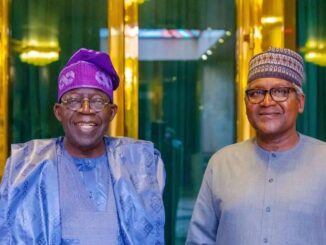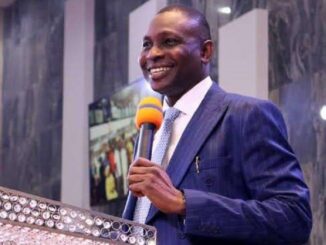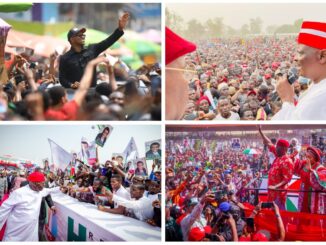
April 26, 2025
Former member of Nigeria’s House of Representatives, Dr Wale Oyediran, has voiced strong dissatisfaction with the economic fallout from President Bola Tinubu’s removal of fuel subsidy, warning that it has drastically worsened the living conditions of ordinary Nigerians.
Appearing on Inside Sources with Laolu Akande, aired on Channels TV, Oyediran, who also serves as Chief Executive Officer of the Pan-African Writers Association, gave a candid and sobering assessment of Nigeria’s economic trajectory.

He said the subsidy removal, rather than delivering immediate benefits, had dealt a profound negative shock to the economy and the daily lives of citizens.
Reflecting on the broader economic landscape, Dr Oyediran pointed to the painful irony of Nigeria’s situation, observing that despite its abundant resources and strategic economic position, the country continues to be trapped by persistent poverty, infrastructural decay, and insecurity.
“Nigeria still remains among the top five strongest economies in Africa, but we are not where we ought to be,” he said, underscoring the failure of successive governments to translate economic potential into tangible progress for the people.
The former lawmaker stressed that Nigeria, with its enormous population and the largest economy on the African continent, ought to be a model of development.
Yet, the inability to effectively harness these advantages has left the nation struggling in critical areas, most notably in the power sector. He cited the example of Ghana, where relative electricity stability has provided the foundation for businesses, both small and large, to thrive.
In stark contrast, he lamented that Nigeria’s erratic power supply continues to stifle entrepreneurial activities and worsen the insecurity situation, with street lights often non-functional, leaving communities vulnerable after dark.
Delving into the heart of the economic challenges, Dr Oyediran did not mince words in placing substantial blame on the policy direction of the Tinubu administration, especially the abrupt removal of the fuel subsidy.
ALSO READ: Tinubu stands firm on fuel subsidy removal, economic reforms amid nationwide protests
According to him, the move instantly drove up the cost of living and crippled key sectors that depend heavily on affordable fuel.
He stated: “The decision to take care of the, I mean, the decision to increase the fuel price. Subsidy removal, yes. That was one. And because we know that fuel is required for almost everything we need.
“So that subsidy removal was the first thing that really knocked us down. Whatever the economists may say, has a long-term benefit.”
While acknowledging that economists predict long-term gains from subsidy removal, Dr Oyediran emphasised the heavy short-term burden it has imposed, particularly on the most vulnerable segments of society.
Beyond policy failures, he identified systemic corruption as a principal factor undermining Nigeria’s development, citing credible estimates indicating that corruption drains a significant portion of the nation’s resources.
“It’s estimated that up to 30% of our national income is lost to corruption,” he revealed, describing corruption as a cancer that continues to eat away at Nigeria’s collective wealth and future.
Offering a vivid anecdote from a personal encounter, Dr Oyediran narrated how, during a visit to Abuja, a driver pointed out the extravagant mansions in the upscale Guzape area, claiming that many of these buildings were erected with diverted public funds.
The incident, he said, served as a stark reminder of how widespread corruption has contributed to public disillusionment and frustration, especially as essential services like stable electricity remain grossly inadequate.
He further painted a bleak picture of the humanitarian toll the economic situation has taken on Nigerians.
Dr. Oyediran recounted his experience at the airport where, at almost every point, individuals tried to solicit assistance from him, a reflection of the deep desperation now commonplace across the country.
In his words: “So it’s such a depressing. I’m not saying that poverty is limited to Nigeria. I mean, when I travel to West Africa and East Africa, I see a lot of poverty around. But for me, Nigeria, with our substantial resources, we shouldn’t be in this class.”
His remarks captured the sense of missed opportunities and national underachievement, painting a picture of a country blessed with vast human and material resources but trapped in cycles of poor leadership, corruption, and economic mismanagement.
In closing, Dr Oyediran’s intervention stands as a call to action, urging Nigerian leaders to rethink their economic policies, confront corruption head-on, and embark on sincere reforms that can unlock the country’s true potential, lest Nigeria continue to punch below its weight both in Africa and globally.




